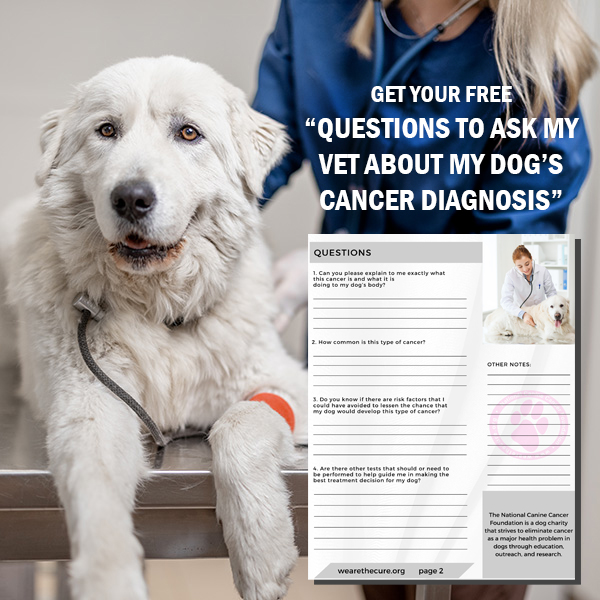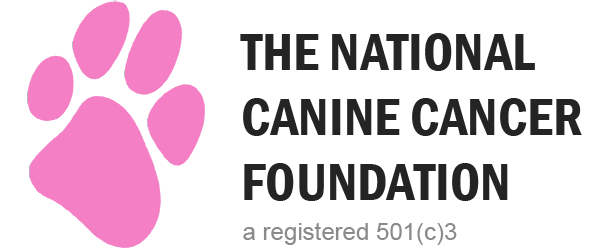
Questions to Ask Your Vet After a Canine Cancer Diagnosis
We have put together a FREE downloadable that has all the questions that you need to ask at your first consultation. This resource was written by a veterinarian, Dr. Kyle Stevenson, who has lost her dog to cancer. She has used her education and experience to put a complete list of questions that you can ask your vet in order to get the information you need to make critical decisions for your dog.

Download our Free Ask the Vet Guide!
How to Use This Complimentary Set of Questions:
We designed this to be ready for instant download and printing. Along with the questions we have provided ample space for you to write the answers and take extra notes. Let’s face it, there will be information overload at this visit and you want to be able to have notes to look back on as you digest the information and plan out your dog’s cancer journey.
Get Updates and Important News:
Additionally, we’ll add you to our newsletter and information list so you can stay up to date on all the latest research, and education from the National Canine Cancer Foundation.


